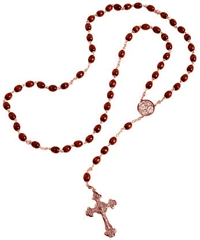What makes March 25th a special day? Nothing. A little over two thousand years ago, on a day very much like today, ordinary, sleepy (or stressful... insert your own adjective here) and unassuming, something inconceivable happened.
An angel, not just any angel, mind you, an archangel — one of those who perpetually contemplate the face of God — was sent to a humble teenage girl, a teenage girl who had consecrated herself to remaining virgin, to ask her, if she would be the Mother of God.
This mystery in the God's plan of salvation has been the subject of many writings of the Church Fathers and theologians and saints alike. I am not going to pretend that what I write here will hold candle against any of their simplest quotes, but I would like to share this image (below) that I found of the Annunciation.
 This is a painting set in the modern times, in a modern suburbia, and yet it captures the "ordinariness" juxtaposed with the loftiness of Mary's vocation. Many paintings of the Annunciation reveal the depth of the mystery beheld by their painters, of this divine logic. Imagine Mary as a young girl, going about her daily household tasks, or studying, or working, like what any of us are doing today. And then an archangel asked for her permission—we can imagine all of the inhabitants of Heaven holding their breath at this moment—for the Son of God to take flesh, to be amongst His people.
This is a painting set in the modern times, in a modern suburbia, and yet it captures the "ordinariness" juxtaposed with the loftiness of Mary's vocation. Many paintings of the Annunciation reveal the depth of the mystery beheld by their painters, of this divine logic. Imagine Mary as a young girl, going about her daily household tasks, or studying, or working, like what any of us are doing today. And then an archangel asked for her permission—we can imagine all of the inhabitants of Heaven holding their breath at this moment—for the Son of God to take flesh, to be amongst His people.
This "plan" of God to enter into time, into the lives of His people in carne, is nothing short of genius. Like told in the story of the Lord of the Rings, it was told that the Enemy could not conceive that the weak race of Man may seek to destroy the One Ring instead of wielding it for their own gain. Who'd have thought the Son of God would take on human nature and lay down his life to redeem a race of Lost Men?
The story did not end here. It did not end when Mary said yes. It did not end when the Savior was born. It did not end when He died and resurrected either. It is still happening in our days. Our perfectly ordinary days, like today. Each day the Lord is waiting to hear our assent to His will, and to gift us His graces. And each day we are invited to ponder anew and repeat, with Mary, fiat mihi secundum verbum tuum.





